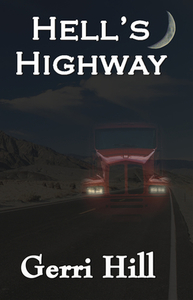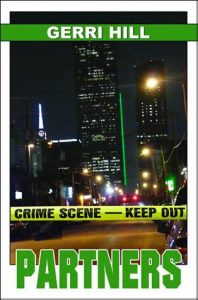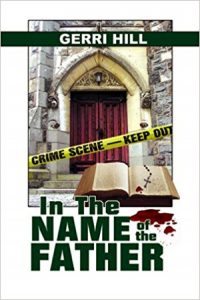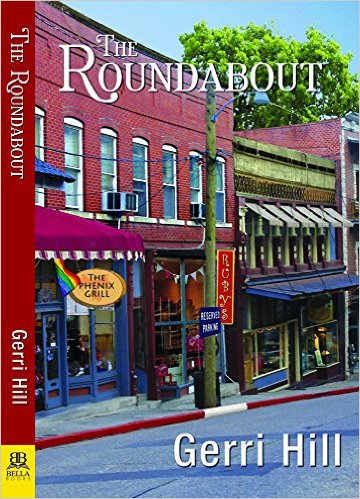Amazon Affiliate Link | Bookshop.org Affiliate Link
Every year, I plan on spending December reading seasonal books: Christmas romances, wintry fantasy novels, snowed in stories, and so on. And every December, I find myself with an “urgent” TBR that pushes those books off my reading list. There are always ARCs to review, books to read for the next All the Books podcast recording, or library books with encroaching due dates. Although about 98% of my reading comes from ARCs or library books, in 2016 I was so excited by the premise of this novel (a snowed in sapphic romance) that I ordered it on the spot. And there it’s sat on my shelves for the last 5 years.
This year, though, I finally said enough was enough, and although I still have books I should be reading, I carved out some space for seasonal reads. After all this time of anticipation, I pulled down Snow Falls from by TBR shelves and picked it up. Immediately, it was exactly what I wanted from it: an F/F romance about two strangers who get snowed in together for weeks. One is a grumpy and secretive recluse, the other sheltered, clueless, and chatty. There’s only one bed! There’s two huskies!
Unfortunately, there were also aspects of this book that just didn’t work for me. The romance itself was nice, slowly building a relationship between them, but other plot points fell flat for me. There’s a lot of references to a scandal Ryan went through that leads to her living in anonymity in the middle of nowhere, but when that scandal is revealed, it felt anticlimactic for how much weight was being put on it. The sex scenes also didn’t work for me, and sometimes the dialogue felt stilted. I know Jen is sheltered (she grew up in a controlling, religious family and was homeschooled), but “I was apparently conceived at a drug party where she had sex with as many as seven different guys” is a sentence that does not sound natural.
On top of that, there were a few things I took issue with. Let’s go in escalating order of alarming: first, Ryan makes a joke about how she might have “mental disorder” and that Jen should be worried (this is after also joking about being an axe murderer), which is an ableist joke that I wish had been left out. Then there’s an issue I find with many lesfic titles: no acknowledgement of bisexuality. Jen is questioning her sexuality—she’s currently in a relationship with a guy—but the word bisexual isn’t mentioned. She just wonders if she’s straight or gay. That I could let slide, since she is very obviously gay (she’s never had any sexual attraction to her boyfriend), but it’s reinforced later with another character.
In fact, let’s give Presley her own character, since she’s involved in the most alarming/weirdest part of the book. Presley is Ryan’s brother’s date, and she’s openly hitting on Ryan. Ryan asks her why she’s doing this, since “you’re straight.” (They’ve never interacted before this, so Ryan seems to be assuming any woman who dates men is straight.) Worse, Presley then agrees that yes, she is straight, and that she’s had men and women lovers. She proceeds to keep hitting on Ryan. Now, I’m not denying that there are women who call themselves straight and also frequently sleep with women, but again, the word bisexual doesn’t come up at all. This isn’t the alarming part, though.
Charles, Ryan’s brother, takes her aside at the party to say that his date is flirting with her:
[Charles:] “You interested?”
[Ryan:] “In her?”
He raised his eyebrows. “I could watch.”
“You’re insane.”
“We did it before. Remember that chick I brought home from college? What were you? Eighteen?”
“The difference is, I didn’t know you were watching,” she reminded him. She’d never been more embarrassed in her young life when she found out he’s been hiding in the closet. . . . She was, however, careful to check her closet from then on.
To be clear, Charles is presented as a laidback, playboy type. They get along. They both laugh this off. This is… not normal. I get the whole “straight men are into watching lesbians” thing, but your sister??
Needless to say, I can’t give this a glowing review. There were some parts I really enjoyed, including [spoiler, highlight to read] that the breakup with Brad was so civil and that he was a really great friend–it’s so easy to make this character villainous for no reason at all. [end spoiler] But they don’t outweigh the problems I had with it.
Despite this not being to my taste, I loved the reading experience, because it was exactly that snowy, seasonal sapphic romance that I was looking for. It really reinforced that I want to make this time for myself, because I enjoy it just as much as I imagined I would. If I can get that from a book I had so many problems with, I can’t wait for when it’s a book I click with.
Content warning: Homophobia, including from family as well as internalized homophobia.









